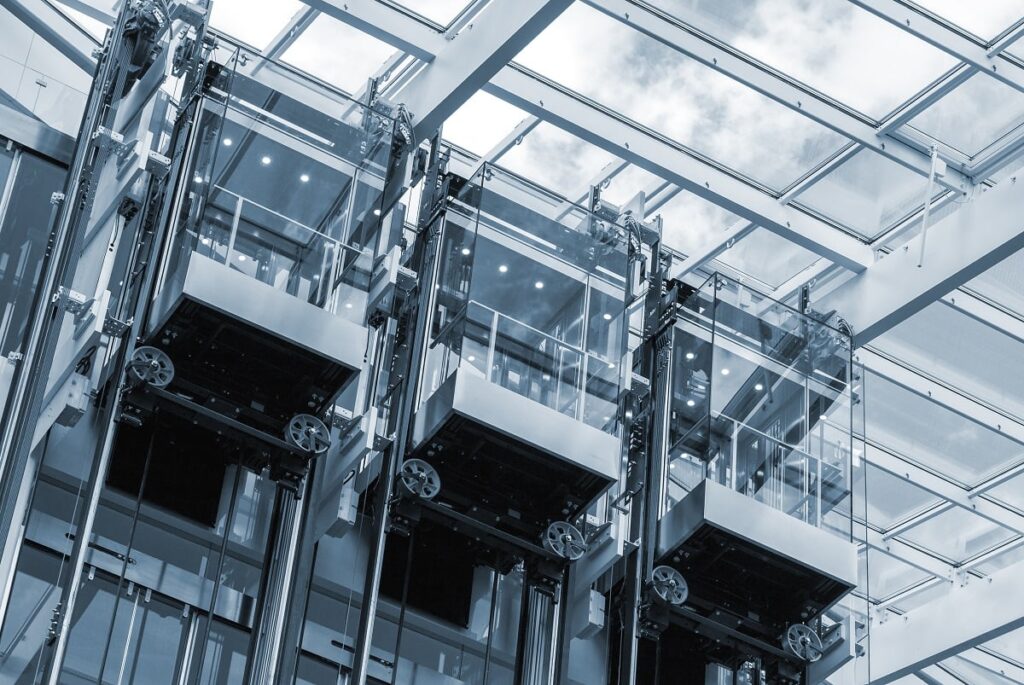Machine-Room-Less (MRL) lifts
Machine-Room-Less (MRL) lifts, also known as gearless traction lifts without machine rooms, are a modern advancement in elevator technology. They differ from traditional traction lifts by eliminating the need for a separate machine room, offering several advantages and making them popular choices for many buildings.

How they work:
- Similar to traction lifts: They utilize a gearless traction drive system with ropes or belts and a sheave to move the cabin.
- Compact machinery: Instead of a dedicated machine room, the motor, drive, and control systems are miniaturized and placed within the hoistway (the shaft where the lift travels).
- Space-saving: Eliminating the machine room frees up valuable building space that can be used for other purposes.
Advantages:
- Space-saving: As mentioned, no dedicated machine room means more usable space in the building.
- Cost-effective: Lower construction costs due to reduced space requirements and installation complexity.
- Energy-efficient: Modern MRLs use regenerative drives, returning energy back to the grid during descent, reducing consumption.
- Environmentally friendly: Lower energy use translates to smaller carbon footprint.
- Quieter operation: Compact machinery within the hoistway can lead to quieter operation compared to traditional setups.
- Flexible design: MRLs offer more design flexibility as the machine room doesn’t restrict placement options.
Disadvantages:
- Limited load capacity: Generally have lower weight capacity compared to traditional traction lifts with dedicated machine rooms.
- Higher initial cost: The technology and components used in MRLs might have a higher initial cost compared to standard traction lifts.
- Accessibility for maintenance: Machinery within the hoistway might require specialized access for maintenance compared to a dedicated room.
Applications:
- Low-rise to mid-rise buildings: Ideal for buildings with up to 20-25 floors due to their space-saving benefits and efficiency.
- Residential and commercial buildings: Widely used in apartments, hotels, office buildings, and other structures.
- Renovations and retrofits: MRLs can be a good option for upgrading existing lifts in buildings with limited space for a machine room.
Overall, MRL lifts offer a space-efficient, energy-saving, and modern alternative to traditional traction lifts. Their suitability depends on specific building requirements like height, weight capacity, and budget.